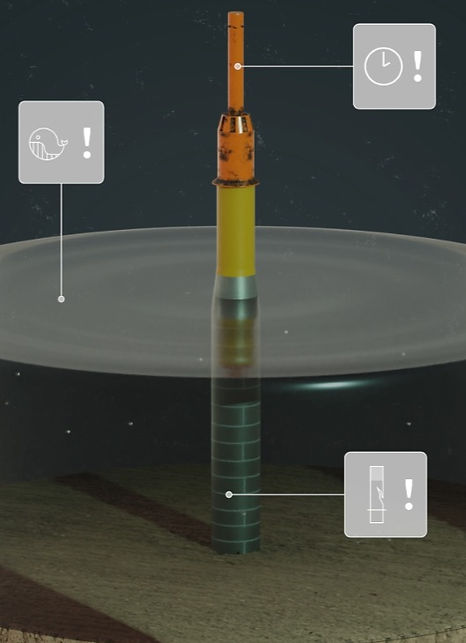Product & Services

Conventional methods
Conventional installation techniques involve the use of an hydraulic hammer which has the following downsides which are negated by using a GBM Vibrojet® ...
-
Piling operations using a hydraulic hammer and noise mitigation are complex, time-consuming and therefore prone to delays in bad-weather conditions.
-
Each hammer blow creates high noise levels that are harmful to marine life. Several European governments have introduced regulations that result in the mandatory use of expensive noise mitigation such as bubble curtains.
-
The impact of the hydraulic hammer on the top of the pile causes severe fatigue damage to the foundation pile, leading to overdesigned, heavy and thus more expensive monopiles.

Technology principles
New installation methods for pile driving are highly required in the market. Traditional hammering creates harmful noise and faces physical limits in the everyday larger foundations.
GBM Works developed new methods. Silent, efficient and able to scale up.


Offshore equipment
With the advance of 10+ MW wind turbines and increasingly strict noise standards, the existing pile-driving method with hydraulic hammers for monopiles is under high pressure.
Extra measures are needed such as bubble screens or a wall around the monopile. They are expensive and time consuming to install. The pile is also damaged by the hydraulic hammer, which means that larger piles are needed than actually necessary.
GBM Works has developed the Vibrojet®, a machine to install monopiles in a silent and fast way.
Nearshore and Infra foundations
The installation of combi walls in sand and clay soils traditionally involves pre-drilling and post-drilling. A time-consuming process, and a logistical puzzle that regularly drives up the cost of the entire installation. With GBM's Vibrojet®, the installation process is simplified. Thus, many costs can be saved.
Consultancy & Test facilities
GBM Works developed its Fluidflow® software based on theoretical knowledge and execution of scale testing at own laboratories in Utrecht. The model, built in cooperation with science institutes and partners Deltares and TU Delft, is constantly further validated for all type of soils.
